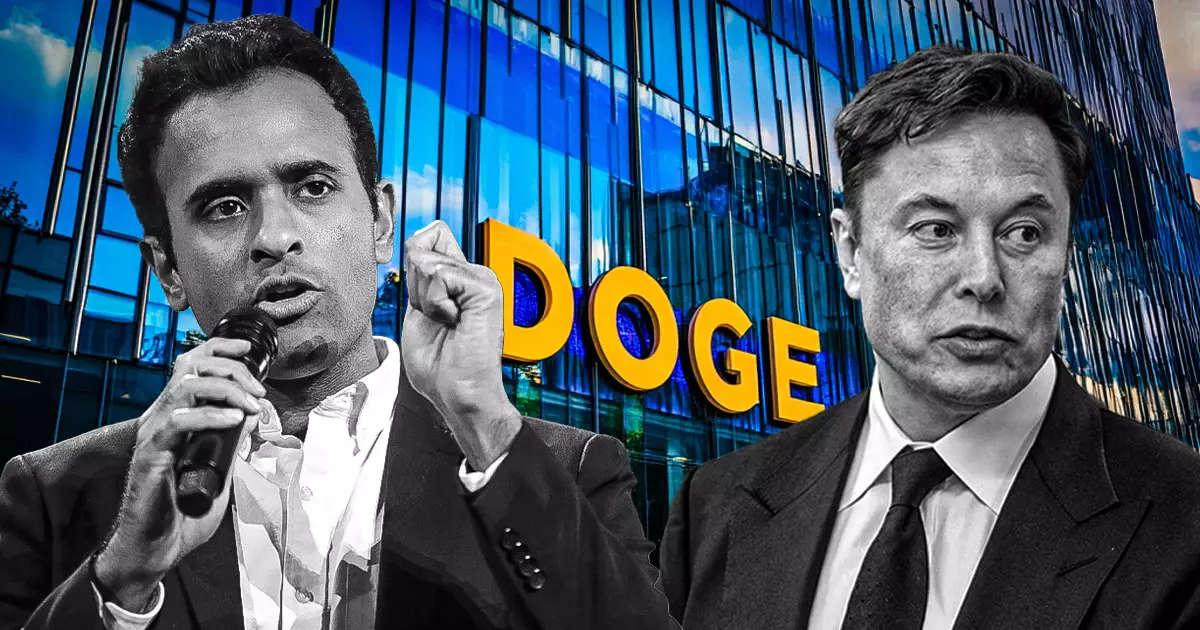In a bold move reflecting his vision for a more efficient government, President-elect Donald Trump has appointed two prominent figures from the tech and political realms—Elon Musk and Vivek Ramaswamy—to spearhead a new initiative titled the Department of Government Efficiency (DOGE). Announced via Trump’s Truth Social platform, the initiative is rooted in a desire to address the pervasive inefficiencies that have long plagued the Federal government. Trump draws a colorful parallel to the Manhattan Project from World War II, claiming that DOGE’s mission is integral to his broader “Save America” campaign. The initiative’s focus lies on improving the staggering $6.5 trillion annual budget by targeting “waste and fraud,” with ambitious goals set to overhaul governmental procedures by July 4, 2026—the 250th anniversary of American independence.
DOGE is poised to operate semi-independently, all while collaborating with critical government branches such as the White House and the Office of Management and Budget. Trump aims for this initiative to yield a “smaller, more efficient government,” reducing bureaucratic hurdles that have stifled progress and innovation. The president’s confidence hints at a significant departure from traditional practices, favoring a leaner structure that promises to engage various stakeholders in governmental reform.
Elon Musk’s involvement undoubtedly adds a layer of technological insight to DOGE, having been a vocal advocate for progressive reforms in multiple sectors. In his social media announcement, Musk emphasized transparency, committing to regular public updates as part of DOGE’s accountability framework. His pledge to feature a “leaderboard” of government expenditures labeled as excessively wasteful signifies an attempt to engage the public interactively—perhaps even mixing civic duty with a touch of entertainment.
Furthermore, Ramaswamy’s contributions highlight the importance of public engagement in governmental reforms. His statement about inviting citizen submissions on instances of waste creates a vibrant avenue for grassroots involvement, aligning with the ongoing dialogue about empowering Americans to reclaim their voice in the governance process. The sentiment expressed by both Musk and Ramaswamy reflects a desire for substantial reform, which seems to resonate with a populace eager for change.
However, it’s essential to tread carefully amidst the excitement surrounding DOGE. While the initiative’s auspicious beginnings are promising, the practical execution remains to be seen. The public’s high expectations are tempered by a reality check on the complexities of dismantling entrenched governmental systems.
Interestingly, the choice to name this initiative DOGE resonated with fans of the meme cryptocurrency Dogecoin. This connection could be seen either as a clever strategy to engage crypto enthusiasts or simply a nod to the cultural momentum behind the cryptocurrency, which Musk has long championed. Yet, juxtaposed against the elephant in the room, the value of Dogecoin itself fell by 10% following the announcement, raising questions about market volatility and speculation tied to high-profile endorsements.
Observing how Musk’s involvement unfolds within DOGE presents an intriguing dynamic in cryptocurrency benefits amidst potential regulatory shifts. With the anticipation of a bull market, Musk’s established rapport with Dogecoin might encourage optimism among investors, creating a complex but potentially fruitful intersection between politics, technology, and economic strategy.
While the ambitious goals of DOGE spark excitement for transformative governmental reform, the journey ahead will undoubtedly be fraught with challenges that require collective effort from both leaders and citizens. The efficacy and transparency emphasizing public participation are crucial as we watch this initiative unfold.














Leave a Reply